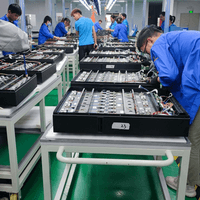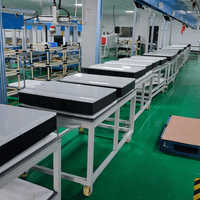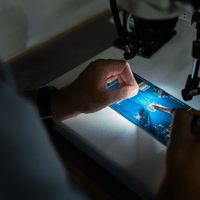Introduction
Navigating the complex world of electronics and manufacturing requires a solid understanding of various regulations, and one of the most critical is RoHS compliance. RoHS, which stands for Restriction of Hazardous Substances, plays a vital role in ensuring that products are safe for consumers and the environment. As industries evolve, grasping why RoHS compliance is important becomes essential for businesses aiming to thrive in a global market.
Understanding RoHS Compliance
At its core, RoHS compliance means adhering to specific regulations that limit the use of certain hazardous materials in electronic and electrical equipment. The directive was established to protect human health and the environment by restricting substances that can be detrimental when products are disposed of improperly. With an increasing focus on sustainability, understanding RoHS compliance has never been more crucial for manufacturers across various sectors.
The Role of Restricted Substances
Restricted substances under RoHS include heavy metals like lead, mercury, cadmium, and other harmful chemicals that pose risks during production or disposal. These substances can leach into soil and water systems if not managed properly, leading to significant environmental degradation and health hazards. By limiting these materials in product design, companies not only comply with regulations but also contribute positively to public health and environmental conservation.
Who Needs to Comply with RoHS?
RoHS compliance applies broadly across the supply chain—from manufacturers creating products to distributors selling them globally. Importers and retailers must also ensure their offerings meet these standards or risk facing penalties or market access issues. Understanding who does RoHS apply to is vital; it’s not just about avoiding fines—it's about fostering responsible business practices that resonate with today’s eco-conscious consumers.
What is RoHS Compliance?

RoHS, or the Restriction of Hazardous Substances, is a directive aimed at reducing the environmental and health impacts of certain hazardous materials found in electronic and electrical equipment. By limiting the use of specific substances, RoHS compliance ensures that products are safer for consumers and easier to recycle. Understanding what RoHS compliance entails is crucial for businesses looking to navigate the complexities of modern manufacturing and trade.
Defining RoHS and Its Purpose
At its core, RoHS compliance serves to restrict the use of certain hazardous substances in electrical and electronic products. The primary purpose is to protect human health and the environment by minimizing exposure to toxic materials such as lead, mercury, cadmium, hexavalent chromium, PBBs, and PBDEs. By adhering to these regulations, companies not only fulfill legal obligations but also contribute positively to sustainability efforts.
Historical Context and Development
RoHS was first implemented in the European Union in 2003 as part of a broader initiative towards sustainable development in electronics manufacturing. The directive has undergone revisions since its inception, reflecting advancements in technology and growing awareness about environmental issues. This historical context highlights why RoHS compliance is important—not just for regulatory reasons but also for fostering innovation that prioritizes safety and sustainability.
Key Objectives of RoHS
The key objectives of RoHS are multifaceted: reducing hazardous waste from electronic products, promoting recycling efforts, and encouraging manufacturers to adopt safer alternatives during product design. By restricting certain substances under RoHS, businesses can mitigate risks associated with disposal while enhancing product lifecycle management. Ultimately, these objectives align with broader global initiatives aimed at protecting both public health and the planet's resources.
In summary, understanding what RoHS compliance involves opens up avenues for companies regarding who does ROHS apply to? It’s not just manufacturers; it extends across importers, distributors, retailers—everyone involved in bringing products into market must consider their role under this directive. Likewise, knowing which restricted substances under ROHS affect your products can guide design choices that ensure compliance while enhancing brand reputation.
Restricted Substances Under RoHS

Understanding the restricted substances under RoHS is crucial for manufacturers and businesses aiming to ensure compliance. These substances, often found in electronics and electrical equipment, pose significant health and environmental risks. By identifying and managing these hazardous materials, companies can mitigate potential liabilities while enhancing their market presence.
Identifying Hazardous Materials
The first step in achieving RoHS compliance is identifying the hazardous materials that are restricted under the directive. The primary substances include lead, mercury, cadmium, hexavalent chromium, and certain flame retardants like PBDEs and PBBs. Recognizing these restricted substances under RoHS not only helps in adhering to regulations but also promotes safer product design practices.
Once businesses have pinpointed these hazardous materials, they can begin to evaluate their products in scope of RoHS. This process requires a thorough examination of components used in manufacturing to ensure that none contain prohibited substances above permissible levels. Ultimately, this proactive approach not only aligns with regulatory requirements but also enhances consumer safety.
Impact on Product Design
The implications of restricted substances under RoHS significantly influence product design strategies across industries. Designers must consider alternative materials that comply with RoHS while maintaining product functionality and performance standards. This shift often leads to innovative solutions that might not have been explored otherwise.
Moreover, incorporating RoHS-compliant materials can enhance a product's appeal in markets where eco-friendliness is prioritized by consumers. Companies that embrace this change may find themselves at a competitive advantage as they cater to an increasingly environmentally conscious audience. Thus, understanding why is ROHS compliance important extends beyond legal obligations; it fosters creativity and sustainability within product development.
Consequences of Non-Compliance
Failing to comply with the restrictions set forth by RoHS can result in severe consequences for manufacturers and distributors alike. Non-compliance may lead to hefty fines, legal actions from regulatory bodies, or even bans on selling products within certain markets—definitely not an ideal scenario for any business! Furthermore, the reputational damage caused by non-compliance could deter customers who prioritize sustainability.
In addition to financial repercussions, companies may face increased scrutiny from stakeholders concerned about health and environmental impacts associated with their products. This underscores why is ROHS compliance important—not just for avoiding penalties but also for maintaining trust with consumers and partners alike. As such, investing time and resources into understanding restricted substances under ROHS becomes imperative for long-term success.
Products in Scope of RoHS

Understanding the products that fall under RoHS compliance is crucial for manufacturers and distributors alike. This section will delve into the categories of affected products, provide examples of common RoHS-compliant items, and highlight industry-specific considerations. Knowing what falls within this scope not only aids in compliance but also reinforces why is RoHS compliance important for business operations.
Categories of Affected Products
RoHS applies to a wide array of electronic and electrical equipment, which can be categorized into several groups. These categories include large household appliances, small household appliances, IT equipment, telecommunications equipment, consumer electronics, lighting fixtures, and more. Each category has its unique characteristics and specific requirements regarding restricted substances under RoHS.
The breadth of these categories underscores the importance of understanding who does RoHS apply to? Manufacturers producing any electronic devices or components must ensure their products meet these stringent regulations to avoid penalties or market access issues. As technology advances, new product categories may emerge that also require adherence to RoHS standards.
Examples of Common RoHS-Compliant Items
Common examples include smartphones, laptops, kitchen appliances like microwaves and coffee makers, as well as lighting solutions such as LED bulbs. These items not only satisfy consumer demands but also adhere to the strict guidelines regarding restricted substances under RoHS.
The presence of these compliant products in the market highlights why is RoHS compliance important—not just for businesses aiming for market access but also for consumers who prioritize eco-friendly choices. Compliance ensures that harmful substances are minimized or eliminated from these popular products while promoting safer alternatives in technology and design.
Industry-Specific Considerations
Different industries face unique challenges when it comes to ensuring their products are within the scope of RoHS compliance. For instance, the automotive industry must navigate complex supply chains while adhering to stringent safety standards alongside environmental regulations like RoHS. Similarly, manufacturers in the medical device sector need to balance innovation with compliance due to rigorous regulations governing both health safety and environmental impact.
Moreover, companies operating globally must remain aware that various regions may have additional restrictions beyond those outlined in standard EU directives—this is where global ROHS compliance software solutions come into play! Utilizing such tools can streamline processes and ensure adherence across diverse markets while reinforcing why is rohs compliance important on a global scale.
Who Does RoHS Apply To?

RoHS compliance isn't just a box to check; it's a crucial aspect of the electronics and manufacturing industries that affects various stakeholders. Understanding who falls under the RoHS umbrella can help businesses navigate compliance effectively while ensuring they meet regulatory requirements. Whether you're a manufacturer, distributor, importer, or retailer, knowing your role is essential for maintaining compliance with restricted substances under RoHS.
Manufacturers and Distributors
Manufacturers and distributors are at the forefront of RoHS compliance efforts. They are responsible for ensuring that their products do not contain any of the restricted substances under RoHS, which include hazardous materials like lead, mercury, and cadmium. By implementing stringent quality control measures and sourcing compliant components, manufacturers can produce items that not only meet legal standards but also contribute to environmental sustainability.
Distributors play a pivotal role as well; they must ensure that the products they handle meet RoHS requirements before reaching retailers or consumers. This involves verifying certifications and conducting regular audits of their supply chains to maintain transparency in product sourcing. Ultimately, both manufacturers and distributors have a shared responsibility to uphold RoHS standards, making it vital for them to stay informed about changes in regulations.
Importers and Retailers
Importers are equally important players in the RoHS landscape since they bring products from outside jurisdictions into regions where compliance is mandatory. They must be diligent in verifying that imported goods adhere to RoHS regulations before they hit store shelves or online marketplaces. This means scrutinizing documentation from manufacturers abroad and ensuring that all restricted substances under RoHS are accounted for.
Retailers also bear significant responsibility when it comes to selling compliant products to consumers. They must educate themselves about which items fall within the scope of RoHS so they can make informed decisions about their inventory. By promoting awareness among customers regarding why is RoHS compliance important, retailers can enhance their brand reputation while supporting eco-friendly practices.
Global Reach and Impact
The global nature of trade amplifies the importance of understanding who does RoHS apply to? Compliance isn't limited by borders; it has far-reaching implications for businesses involved in international commerce. As countries adopt similar regulations inspired by EU's original directive, companies worldwide must adapt their practices accordingly or risk facing penalties.
This global reach means that even small manufacturers may find themselves needing global RoHS compliance software solutions to manage documentation efficiently across multiple jurisdictions. The interconnectedness of today's market makes it imperative for all stakeholders—manufacturers, distributors, importers, and retailers—to work collaboratively towards achieving full compliance with restricted substances under RoHS guidelines.
In conclusion, recognizing who does ROHS apply to? is fundamental for any business operating within affected industries today. Being proactive about compliance not only helps avoid costly fines but also contributes positively towards environmental health—a win-win situation!
Why is RoHS Compliance Important?

Understanding why RoHS compliance is important goes beyond mere regulatory obligation; it encompasses health, market dynamics, and brand integrity. As businesses navigate the landscape of restricted substances under RoHS, they must recognize that compliance can significantly influence their operational success. In a world increasingly concerned with sustainability and safety, adhering to RoHS standards is not just beneficial—it's essential.
Health and Environmental Benefits
One of the foremost reasons why RoHS compliance is important lies in its positive impact on health and the environment. By restricting hazardous materials in electronic products, such as lead and mercury, RoHS helps prevent toxic substances from entering landfills or being released into ecosystems. This commitment to reducing harmful waste not only protects public health but also fosters a cleaner planet for future generations.
Moreover, products in scope of RoHS are designed with safer alternatives in mind, which means consumers can trust that their electronics are less likely to pose health risks. The reduction of restricted substances under RoHS leads to safer manufacturing processes and promotes innovation in creating environmentally friendly materials. Ultimately, prioritizing health and environmental benefits aligns with global sustainability goals that resonate with today’s conscientious consumers.
Market Access and Trade Compliance
Another critical aspect of why RoHS compliance is important pertains to market access and trade compliance. Many countries have adopted stringent regulations regarding electronic waste management; thus, failing to comply with these standards can result in significant barriers to entry in lucrative markets like the European Union. Companies seeking global reach must ensure their products meet these requirements or risk being sidelined by competitors who prioritize adherence.
Additionally, understanding who does RoHS apply to? extends beyond manufacturers; it includes distributors and retailers as well. Non-compliance could lead not only to fines but also damage relationships with suppliers or customers who expect adherence to international standards—making it imperative for all stakeholders involved in the supply chain to be aware of their responsibilities.
Enhancing Brand Reputation
In today's competitive marketplace, enhancing brand reputation through responsible practices has never been more crucial—and this is where understanding why ROHS compliance is important comes into play. Companies committed to adhering strictly to regulations around restricted substances under ROHS often find themselves viewed favorably by consumers who value ethical practices over profit margins alone. A strong commitment to environmental responsibility can set a brand apart from others still grappling with compliance issues.
Furthermore, showcasing efforts toward sustainability not only attracts eco-conscious customers but also builds trust among investors who consider corporate social responsibility a key factor when making investment decisions. By integrating global ROHS compliance software solutions into their operations, companies can streamline processes while reinforcing their dedication toward maintaining high standards—ultimately transforming regulatory adherence into a strategic advantage rather than an obstacle.
Global RoHS Compliance Software Solutions

Navigating the complex landscape of RoHS compliance can be daunting, especially with the myriad of regulations and restricted substances under RoHS. Fortunately, a variety of global RoHS compliance software solutions are available to streamline this process for businesses. These tools not only help organizations understand who does RoHS apply to but also ensure that they stay ahead in meeting compliance requirements.
Overview of Available Tools
There are numerous software solutions tailored specifically for managing RoHS compliance. These tools often include features such as inventory tracking, automated reporting, and risk assessment modules that help identify restricted substances under RoHS present in products. From comprehensive platforms designed for large manufacturers to simpler tools suitable for smaller enterprises, the options are plentiful and cater to diverse needs.
One popular category includes cloud-based solutions that allow real-time collaboration among teams dispersed globally. This is particularly beneficial for companies dealing with various products in scope of RoHS across different regions. By utilizing these tools, organizations can maintain an up-to-date understanding of their product lines' compliance status and make informed decisions quickly.
Benefits of Using Compliance Software
Investing in global RoHS compliance software offers several advantages that extend beyond mere regulatory adherence. First and foremost, it significantly reduces the risk associated with non-compliance—an issue that could lead to hefty fines or product recalls if not managed properly. Moreover, using dedicated software can enhance efficiency by automating tedious tasks like data entry and reporting.
Another compelling reason why is RoHS compliance important is its impact on market access; many regions require strict adherence to these regulations before allowing products into their markets. Compliance software helps ensure your products meet these requirements seamlessly, thereby opening doors to new business opportunities worldwide. Additionally, such tools often provide valuable insights into supply chain management by identifying which suppliers may pose risks due to non-compliance with restricted substances under RoHS.
How China Inspection Pro Can Help
China Inspection Pro stands out as a leading player among global RoHS compliance software solutions tailored specifically for businesses operating within or exporting from China. Their platform provides comprehensive support in identifying restricted substances under RoHS while helping companies navigate the intricate regulatory landscape effortlessly. With user-friendly interfaces and robust analytics capabilities, businesses can quickly assess their product lines' alignment with current regulations.
Furthermore, China Inspection Pro offers specialized features designed for various industries affected by ROHS regulations—ensuring users understand who does ROHS apply to within their specific context effectively. Their expertise extends beyond just software; they also provide consultancy services that guide organizations through the complexities of maintaining ongoing compliance while keeping an eye on future trends related to restricted substances under ROHS.
In conclusion, leveraging global ROHS compliance software solutions like China Inspection Pro not only simplifies adherence but also reinforces your commitment to health and environmental benefits associated with responsible manufacturing practices—making it clear why is ROHS compliance important in today’s market landscape.
Conclusion
In conclusion, understanding RoHS compliance is not just a regulatory checkbox; it's a crucial aspect of modern manufacturing and distribution. With the increasing global focus on sustainability and consumer safety, knowing the ins and outs of RoHS can significantly impact businesses' bottom lines. As industries evolve, staying informed about restricted substances under RoHS and the implications for products in scope of RoHS is more important than ever.
The Importance of Understanding RoHS
Why is RoHS compliance important? For starters, it protects human health and the environment by limiting hazardous materials in electronic products. By grasping the nuances of who does RoHS apply to, companies can better navigate their responsibilities and avoid costly penalties associated with non-compliance.
Moreover, understanding restricted substances under RoHS allows businesses to innovate responsibly while meeting market demands for safer products. This knowledge not only fosters trust among consumers but also enhances brand reputation—an invaluable asset in today’s competitive marketplace. Ultimately, a solid grasp of why is RoHS compliance important empowers organizations to make informed decisions that align with both regulatory requirements and ethical standards.
Future Trends in RoHS Compliance
As we look ahead, future trends in RoHS compliance are likely to evolve alongside technological advancements and growing environmental awareness. More countries are adopting similar regulations to ensure product safety, which will expand the scope of who does RoHS apply to beyond traditional electronics manufacturers. This shift means that even small businesses must stay vigilant about restricted substances under RoHS as they may find themselves impacted by new legislation.
Additionally, emerging technologies like IoT devices will necessitate ongoing adaptations in compliance strategies due to their complex components and materials used. Companies should prepare for increased scrutiny regarding their supply chains as customers demand transparency around product safety—highlighting why is ROHS compliance important now more than ever. Embracing these trends will enable businesses to remain competitive while contributing positively to global sustainability efforts.
Ensuring Your Business Stays Compliant
To ensure your business stays compliant with evolving regulations, leveraging global ROHS compliance software solutions can be a game changer. These tools streamline processes related to monitoring restricted substances under ROHS, making it easier for companies to manage their product portfolios effectively within legal frameworks. By automating aspects like documentation and reporting requirements, organizations can focus on innovation rather than getting bogged down by administrative tasks.
It's essential for manufacturers and distributors alike to stay updated on products in scope of ROHS as well as any changes in legislation that may affect them directly or indirectly. Regular training sessions on who does ROHS apply to can foster a culture of compliance within your organization—ensuring everyone from design teams to sales staff understands their role in maintaining adherence standards. Ultimately, investing time into understanding why is ROHS compliance important equips your business with the tools necessary for long-term success.
